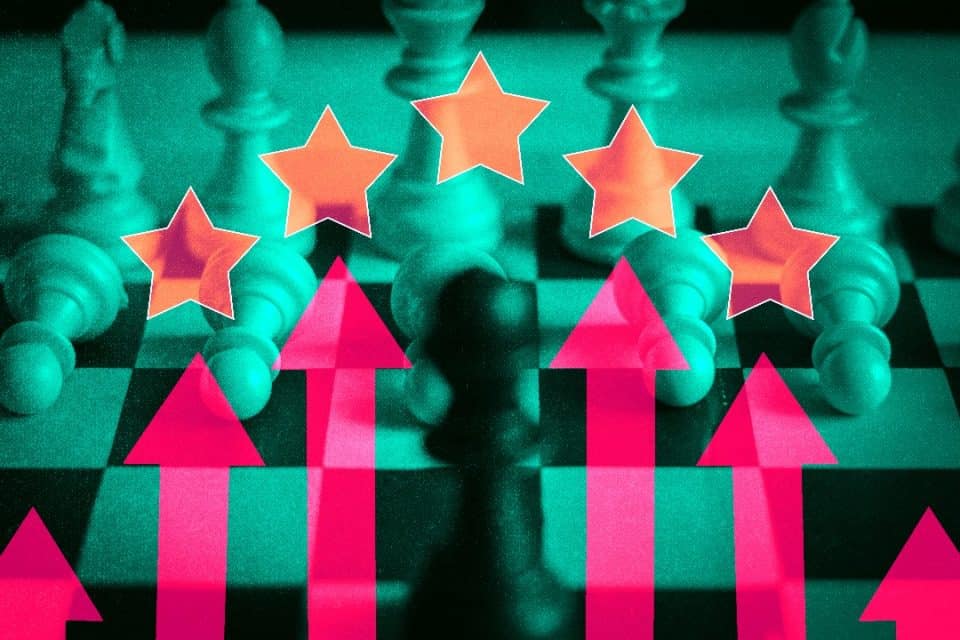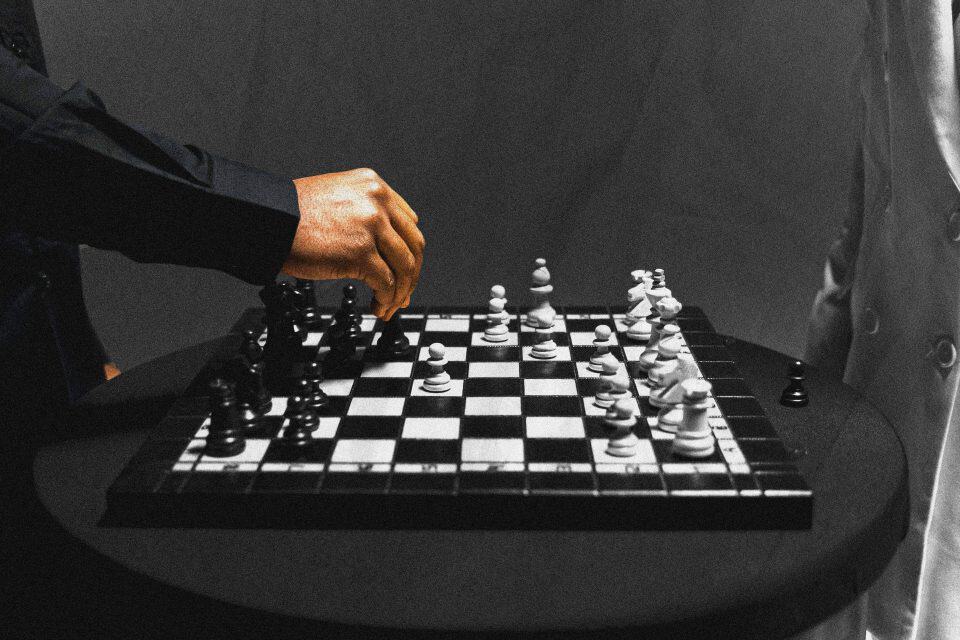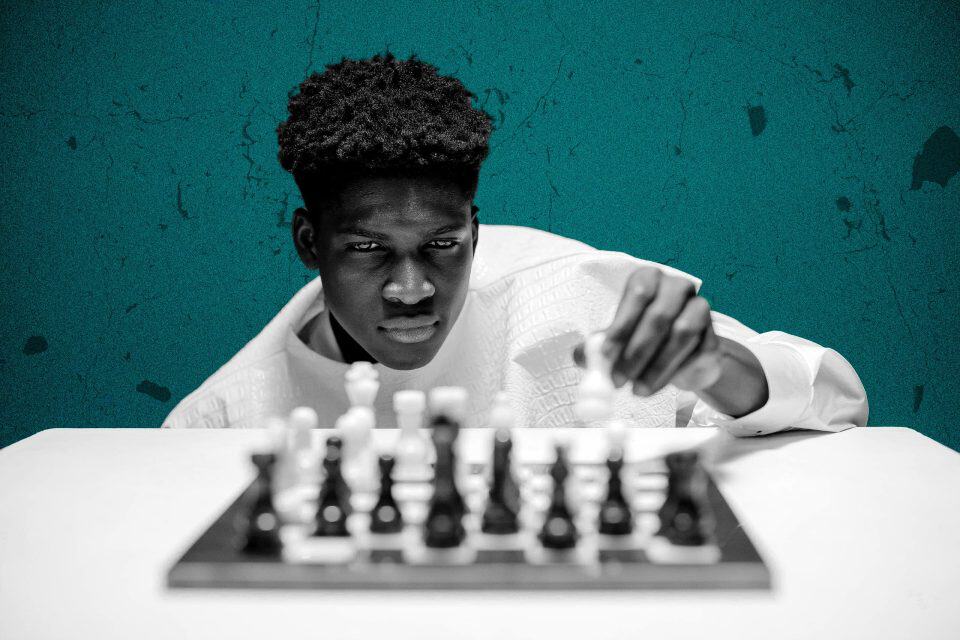In this short guide, you’ll learn some proven ways to improve your chess skills and rating.
We’ll do this by addressing rating ranges from 0 to 1800 to ensure that you have a specific improvement plan to adopt and follow.
Side Note: This guide is more like an overview that’ll lead you to more specific articles where you’ll learn the discussed concept(s) better. Do well to study as much as you can.
Let’s get started.
Improvement Plan To Follow From 0 – 800
Start by learning the basics. Learn how the chess pieces move, the value of each piece and the concept of check and checkmate.
Read our comprehensive guide on how to learn chess.
Learn special moves like Castling and En passant.
Solve many tactical puzzles and learn the fundamental opening principles.
Do well to also learn basic tactical motifs like the pin, skewer, double attack, etc.
Improvement Plan To Follow From 800 – 1000
Solve more tactical puzzles. This will be a very common advice because you can’t stop solving puzzles. They help you sharpen your chess skills and improve your pattern recognition.
Learn basic chess openings for Black and White. At this point, you should look at building an easy opening repertoire that you can get familiar with. Both articles below can help with that.
Start analyzing your games. You have to inculcate the habit of analyzing your games to know where you went wrong and see how you can improve.
We recommend finding a chess coach or a stronger rated player to help you with this.
We don’t advise using engines to analyze your games. You’ll not understand well it plus it’s easy to get sucked in that deception that it’s possible to start playing like engines. It may never happen in your lifetime.
Avoid Blitz (3/5 mins chess). Many beginners try to start playing fast games at this stage, but don’t do it.
Why? It affects your chess progress and makes you stuck in that rating range. The reason is that you have less time to think and calculate, so you play low-quality moves repeatedly.
Keep building your opening repertoire both for White and Black sides and start playing it frequently in all your games.
This practice will help you improve your knowledge regarding the same opening and enhance your grip on the resulting positions. It’ll also help you know how to make decisions quickly and intuitively.
Improvement Plan To Follow From 1000 – 1200
Start learning basic chess endgames.
At this point, you need to have a fundamental understanding of chess endgames so you know how to convert the winning positions you’ve built up.
You need to learn endgame concepts such as triangulation, opposition, zugzwang, etc.
Not just these but also the art of learning not to stalemate your opponents. Beginners fall to these a lot, they end up delivering stalemate instead of checkmate.
In summary, learn basic checkmate patterns and this includes:
- Checkmate With Two Rooks
- Checkmate With Two Knights
- Checkmate With Two Bishops
- Queen And King Checkmate
- Bishop And Knight Checkmate
- 2 Move Checkmate
We also have a huge guide where we wrote about 40 CHECKMATE PATTERNS. You should definitely check that out if you want to understand both common and uncommon mating patterns in chess.
Improvement Plan To Follow From 1200 – 1400
At this level, you should already know your endgame basics, some openings and different types of tactical plans and themes.
Now is the time to perfect them by examining how the great players of the past played the game of chess and learn from their games.
For example, here are some of the best games of the chess legend, Alexander Alekhine that we carefully selected for learning purposes.
Studying past master games will enhance your knowledge of the classics and help you understand a variety of ideas in chess. All the strong players in our present time know their classics very well.
When you study these classics, you’ll notice that your intuition gets better. You begin to notice accurate moves even without deep calculations.
Improvement Plan To Follow From 1400 – 1600
Have a chess companion and study positional concepts together. Or ask stronger players to help review and analyze your games for you.
Having someone to work with in chess is always advantageous. This practice will not only motivate you to pursue new heights in chess but will also act as strong support.
In addition, there are many things you can do with your training partner that you cannot do alone such as playing training games, getting an objective evaluation from a second eye, and much more.
Since you’ve spent time on the tactical aspects of the game, it’s time to focus more on the positional sides.
Therefore, we recommend an in-depth study of the games of players as Tigran Petrosian, Magnus Carlsen, Jose Capablanca, Anatoly Karpov, and Boris Gelfand. Studying their games will deepen your knowledge of positional chess and make you more solid in your play.
Improvement Plan To Follow From 1600 – 1800
At 1800, you’re now a club player.
To get there, we recommend practices like:
- Studying (not just reading) a number of chess books.
- Installing chess engines and training with them.
- Solving more advanced tactical puzzles
- Strengthing your positional understanding with exercises
At this stage, your calculation and visualization skills matter more than ever.
You should be able to calculate length variations, analyze them in your head without moving the pieces and then strive for accuracy.
We wrote a more detailed post on becoming a 1800 rated player with concrete advises from experts in the game. Read more here: How To Get To 1800 Chess Rating With Advice From Experts
Conclusion
There’s no shortcut to improving your rating as a beginner, but you can put in the effort by following the laid down guidelines.
Once you’re consistent in studying and practising, you’ll surely see your rating slowly but steadily climb up that chart.
We can’t wait to hear the amazing progress you make. Feel free to share your thoughts in the comments section!






join the conversation